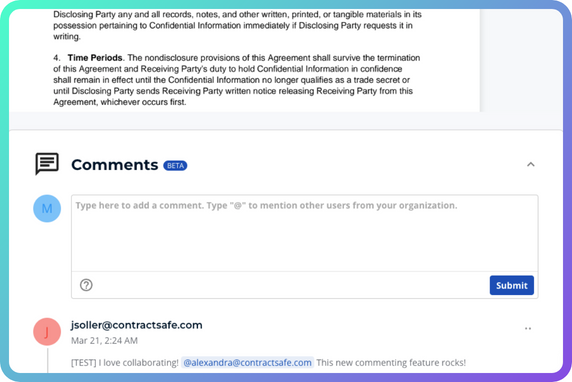What is a limitation of liability?
A limitation of liability clause in a contract limits the amount of money or damages that one party can recover from another party for breaches or performance failures. In other words, the clause can put a cap on the number of damages the organization will have to pay under certain circumstances.
The limitation of liability provision may apply to the entire business arrangement or may be limited to only certain breaches or failures, depending on the parties’ agreement, as reflected in the specific wording of the contract.
Consider, for example, a construction general contractor who has been hired to construct a large commercial building. In turn, the general contractor enters into contracts with many sub-contractors. In each of its contracts with a subcontractor, the general contractor includes a limitation of liability clause that provides that if the general contractor is terminated from the job, the subcontractor cannot recover lost profits against the general contractor. Unfortunately, the general contractor is fired. The new general contractor uses many of the same subcontractors but elects to part ways with the painting subcontractor. The painting contractor is angry because it spent a lot of time and effort to bid for the job, and then to prepare for completing the job. The painting contractor would have earned $25,000 in profits, which it will now lose due to the original general contractor’s firing. Nevertheless, the limitation of liability clause will protect the original general contractor by limiting the painting contractor’s ability to recover lost profits.
While courts will generally uphold limitation of liability clauses, it’s important to remember that some states do not uphold these provisions under certain circumstances. Therefore, it’s important to analyze the issue with your attorney.
Get Started with ContractSafe Today





